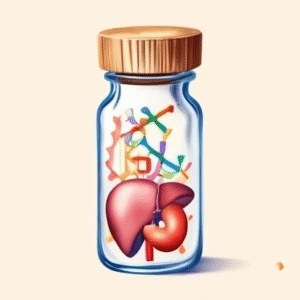Description
Cardiogen peptide is a synthetic tetrapeptide that has been investigated for its possible effects on cell proliferation and apoptosis within heart tissue, as well as its tumor-modifying properties. Specifically, research suggests that it can promote cell proliferation in both young and old rat myocardium and may also inhibit apoptosis. Furthermore, it has demonstrated a tumor-modifying effect on transplanted M-1 sarcoma in rats, with an increase in apoptosis of tumor cells following cardiogen injections. Here’s a more detailed breakdown: Heart Tissue Effects: . Research utilizing organotypic tissue culture on rat heart tissue explants has indicated that cardiogen peptide, at a concentration of 10^-12 M, promotes cell proliferation in both young and old rats. Apoptosis Inhibition: . Cardiogen peptide has been found to reduce the expression of the p53 protein, which is involved in apoptosis (programmed cell death), in heart tissue, indicating its potential to inhibit apoptosis. M-1 Sarcoma Tumor Modification: . In rats with transplanted M-1 sarcoma, cardiogen peptide injections resulted in a higher level of apoptosis in tumor cells when compared to the control group. Potential for Other Effects: . The study on M-1 sarcoma also highlighted that “a significant tumor-modifying effect” was observed, suggesting broader potential implications beyond just the heart.




